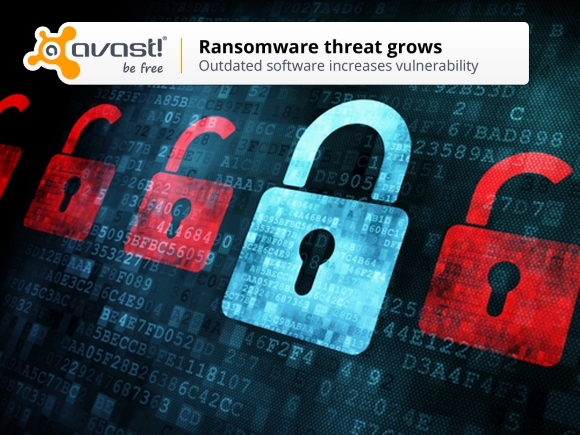The nightmare is back! Your security could be seriously compromised if you do not act now. Install and update your Avast for PC before is too late. The original version of CryptoWall was discovered in November 2013, but a new and improved variant of the CryptoWall ransomware starts to infect computers all over the world last days. It’s the CryptoWall 3.0. Some sources estimate that it has already infected over 700,000 computers up to version 2.0.

CryptoWall is a malware that encrypts certain files in your computer (and secure delete the original ones) and, once activated, demands a fine around $500 as a ransom to provide the decryption key. You’re asked to pay in digital Bitcoins in about 170 hours (almost a full week). After that period, the fee is raised to $1000.
You could be asking why haven’t the authorities blocked the financial funding of them? They use unique wallet ID for each victim into their own TOR anonymity servers. For the user to be able to pay the ransom, he needs to use a TOR-like connection called Web-to-TOR. Each TOR gateway redirects the victim to the same web page with the payment instructions. The commands and communication control is now done using Invisible Internet Project (I2P) instead of Tor.
Infection could reach you in various ways. The most common is as a phishing attack, but it also comes in email attachments and PDF files. The malware kit also abuses various vulnerabilities in unpatched – read non up-to-date – Flash, Java, browsers and other applications to drop the CryptoWall ransomware.
How Avast prevents the infection
1. Avast Antispam and antiphishing protection prevents some vectors distribution.
2. Virus signature block all known ransomwares versions. Remember that Avast automatic streaming updates releases hundreds of daily updates for virus definitions.
3. Community IQ intelligence and sensors of our more than 220 million users that detects malware behavior all over the world. See how it works in this YouTube video.
4. Keeping your software updated is another security measure that prevents the exploit of their vulnerabilities. Learn how Avast Software Updater can help you with this job.
What more can I do?
Avast also helps in prevention of this disaster through its Avast Backup that allows you to keep all your important files in a secure and encrypted way. We also recommend local backup, as the new malware could also attack other drives and even cloud storage. Did you know that Avast Backup also performs local copies of the files? You can enable it at Settings > Options > Local backup, and configure the backup location (better an external drive) and also versioning of the files. Remember to disconnect the external drive from the computer (and the network) to prevent infection of the backups by CryptoWall and further encryption of the files.
Avast Software’s security applications for PC, Mac, and Android are trusted by more than 200-million people and businesses. Please follow us on Facebook, Twitter and Google+.
